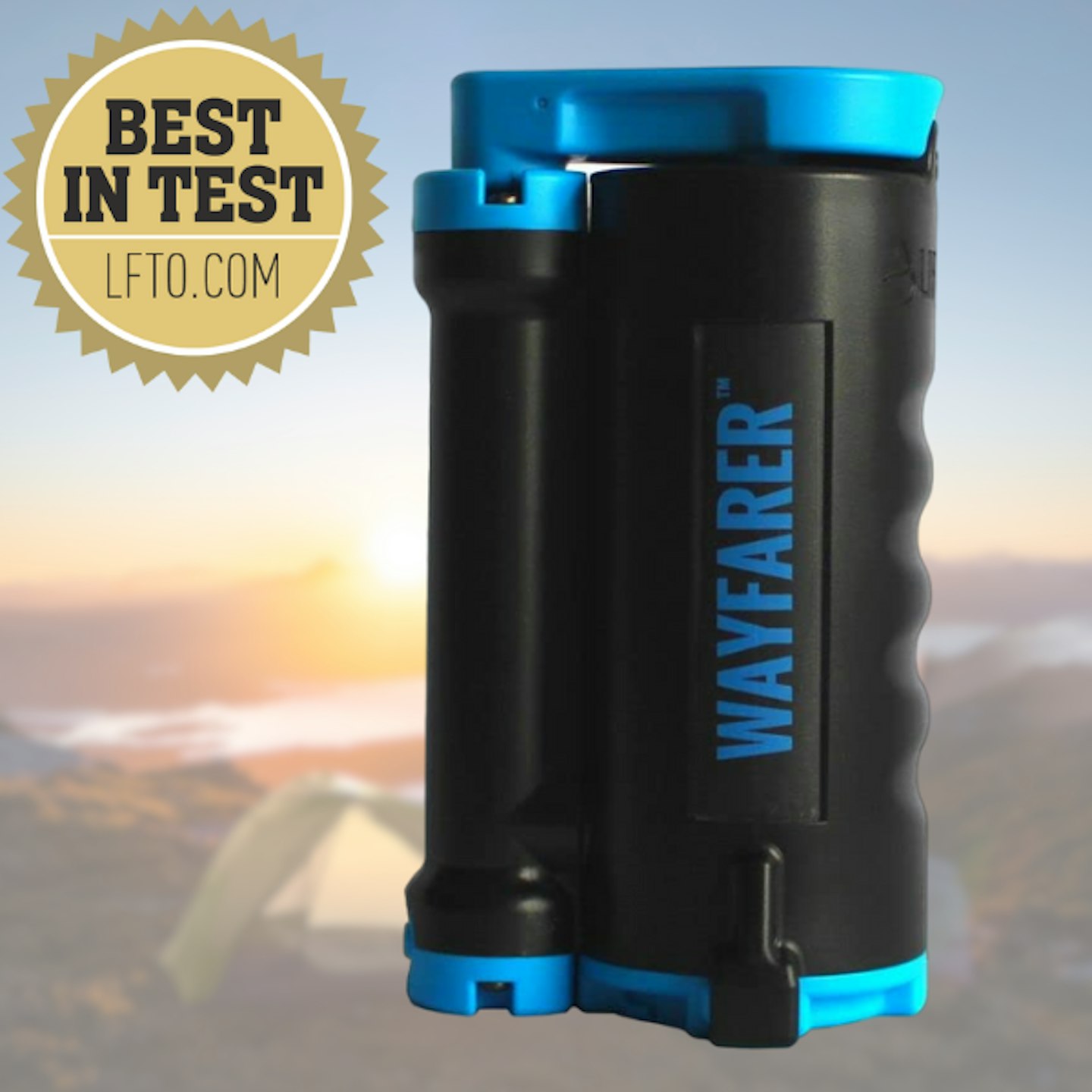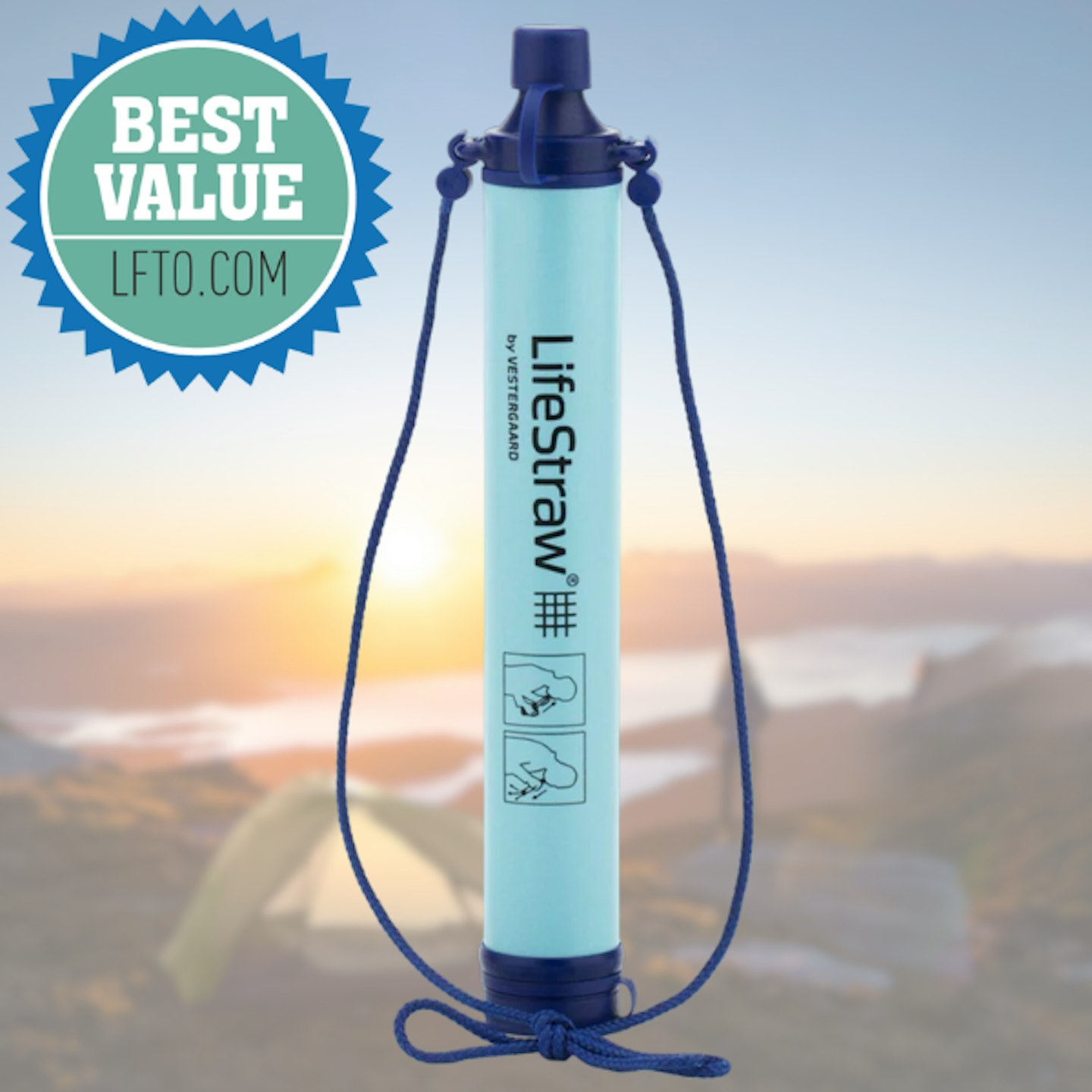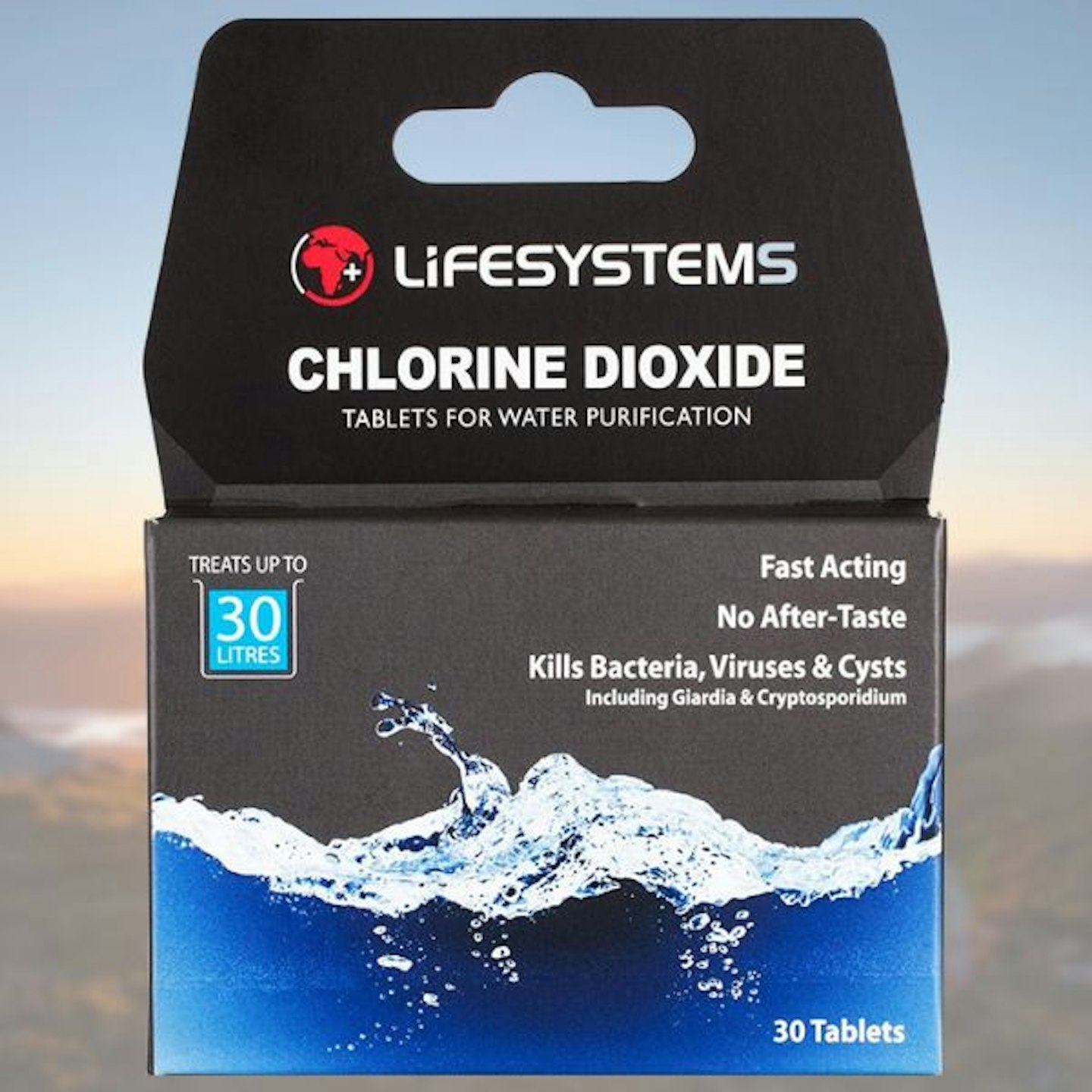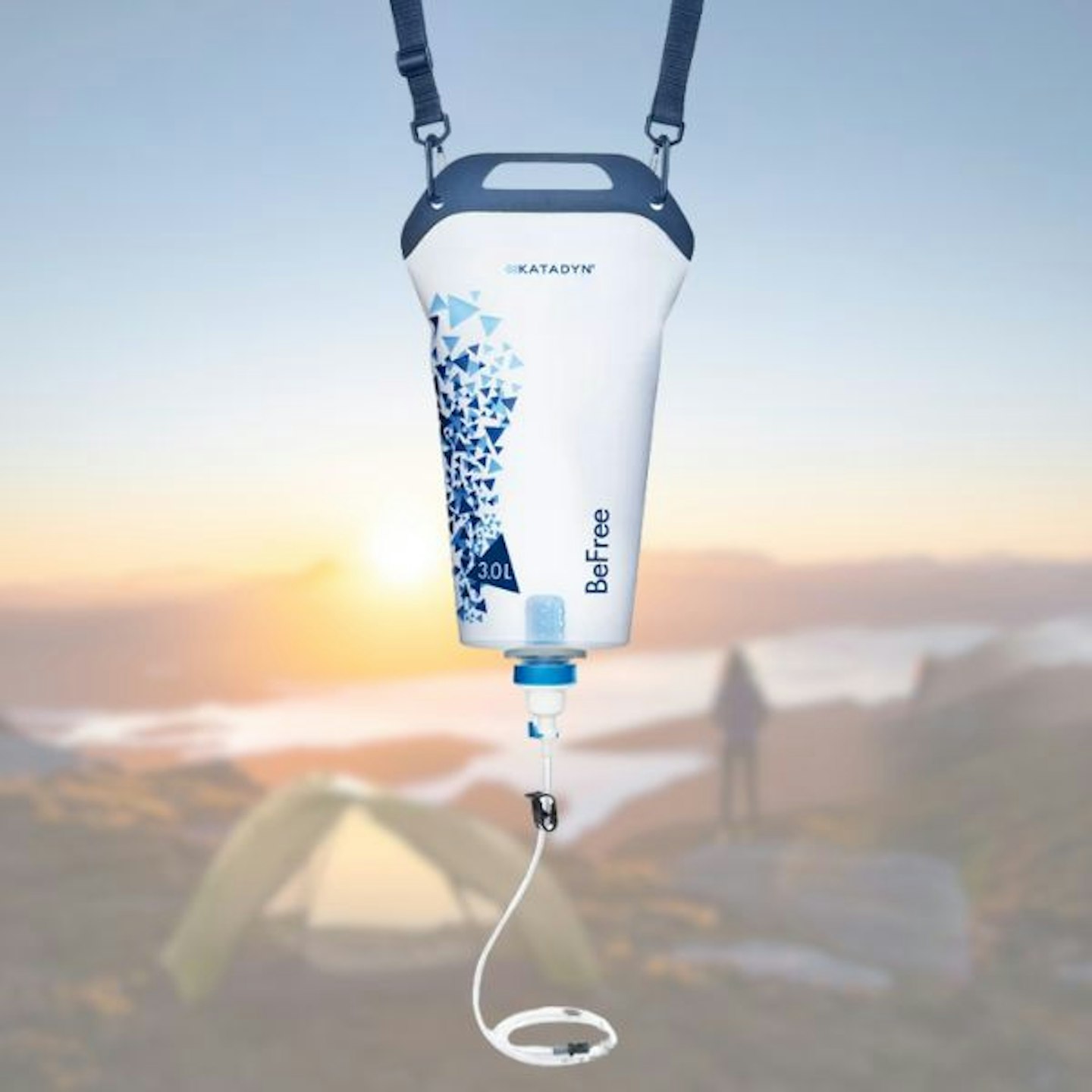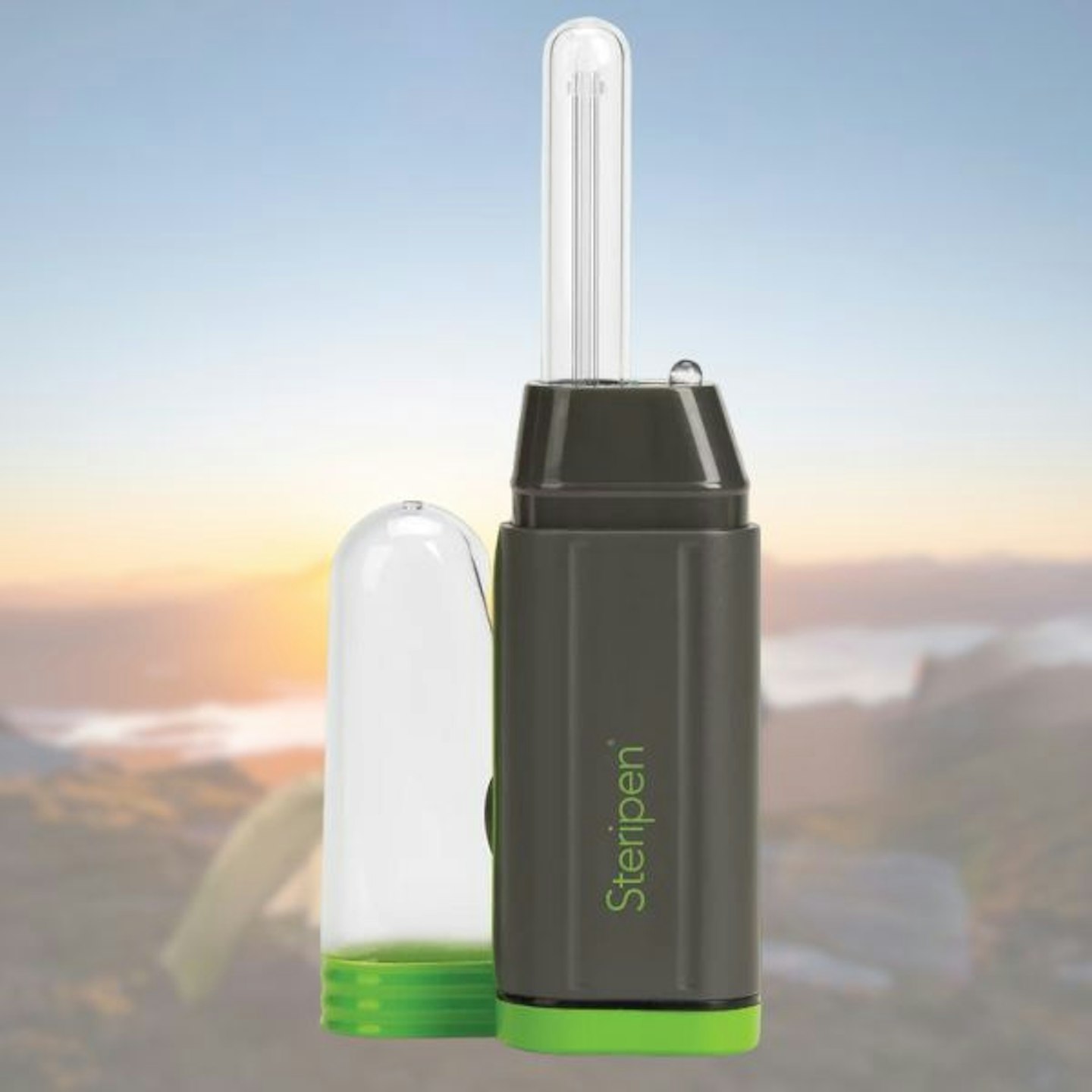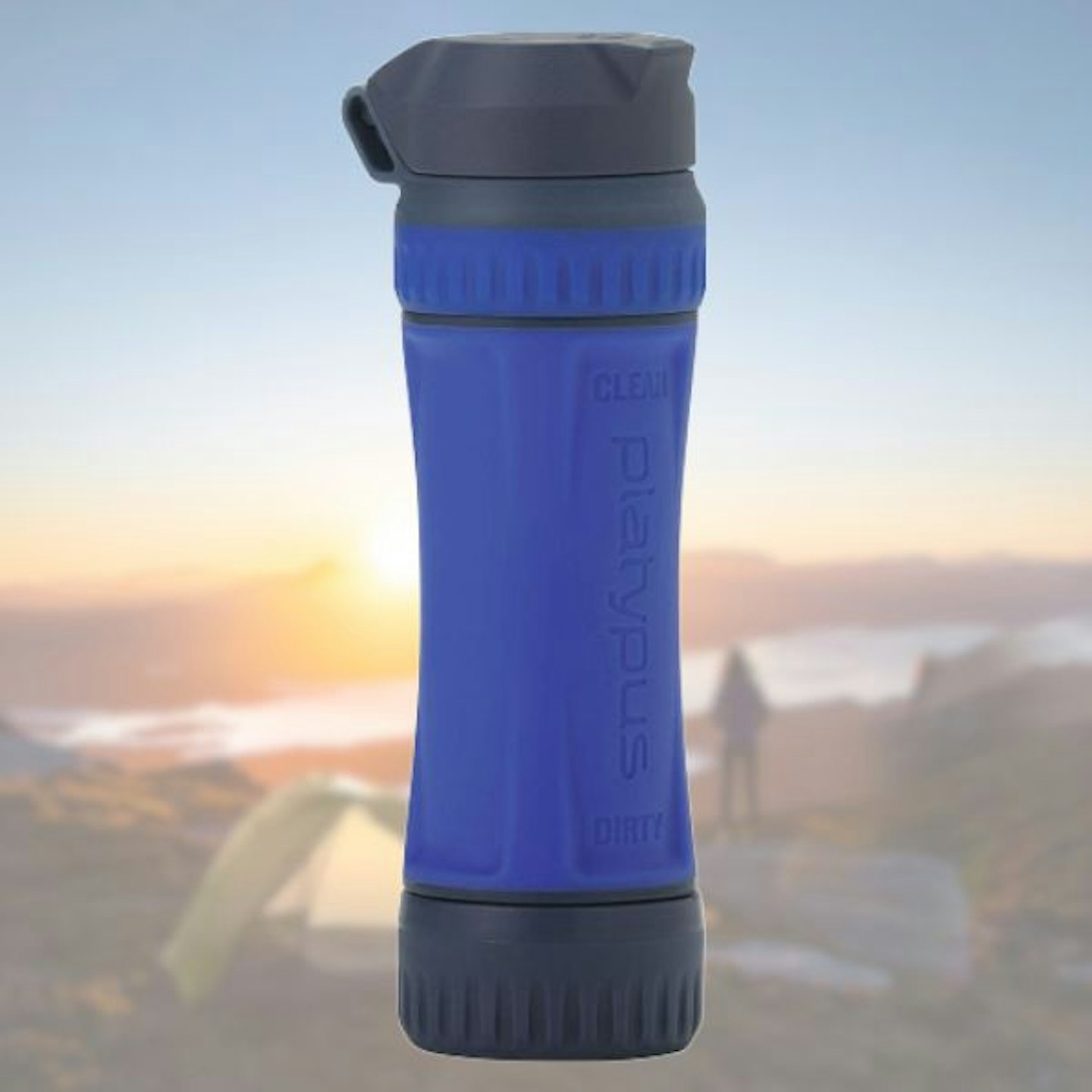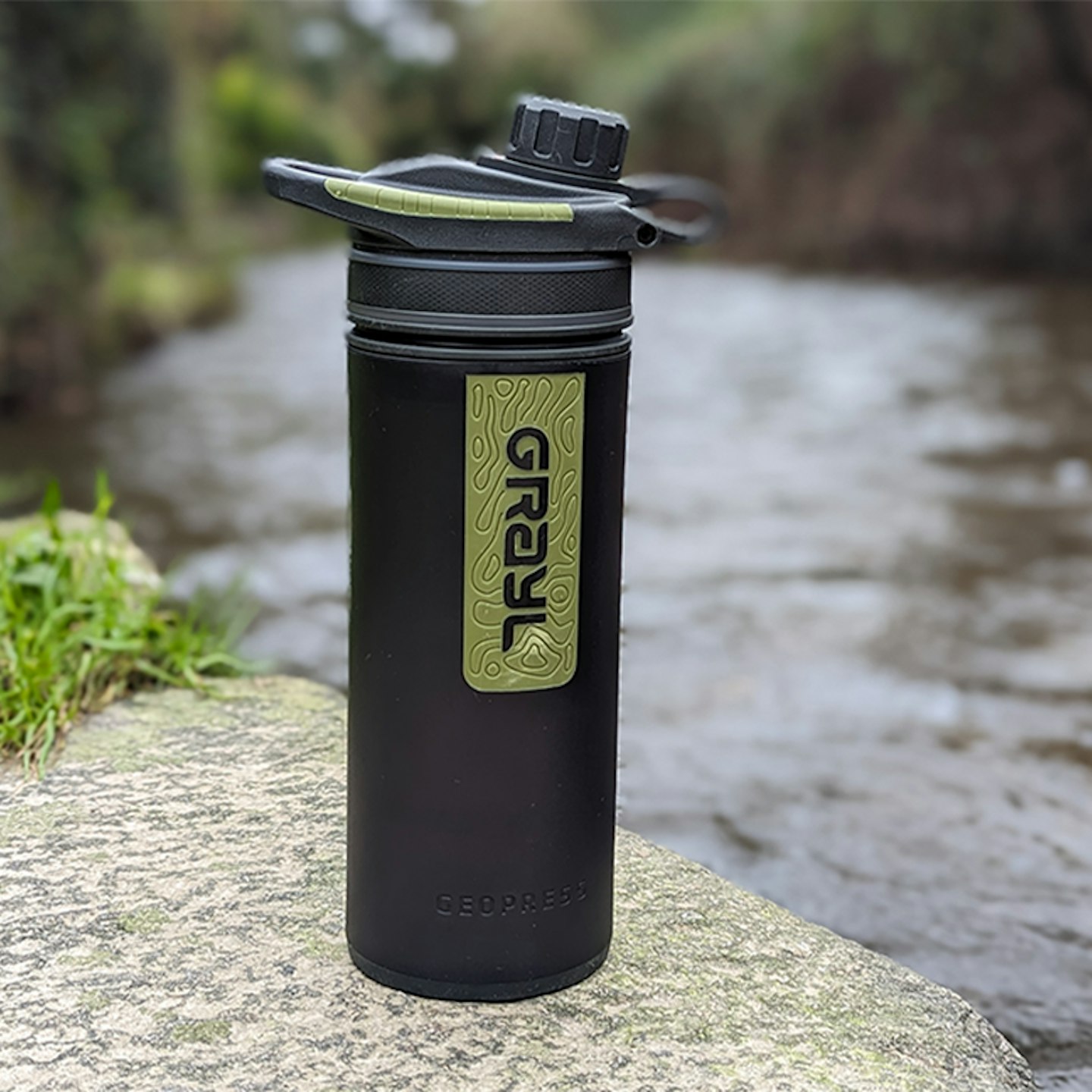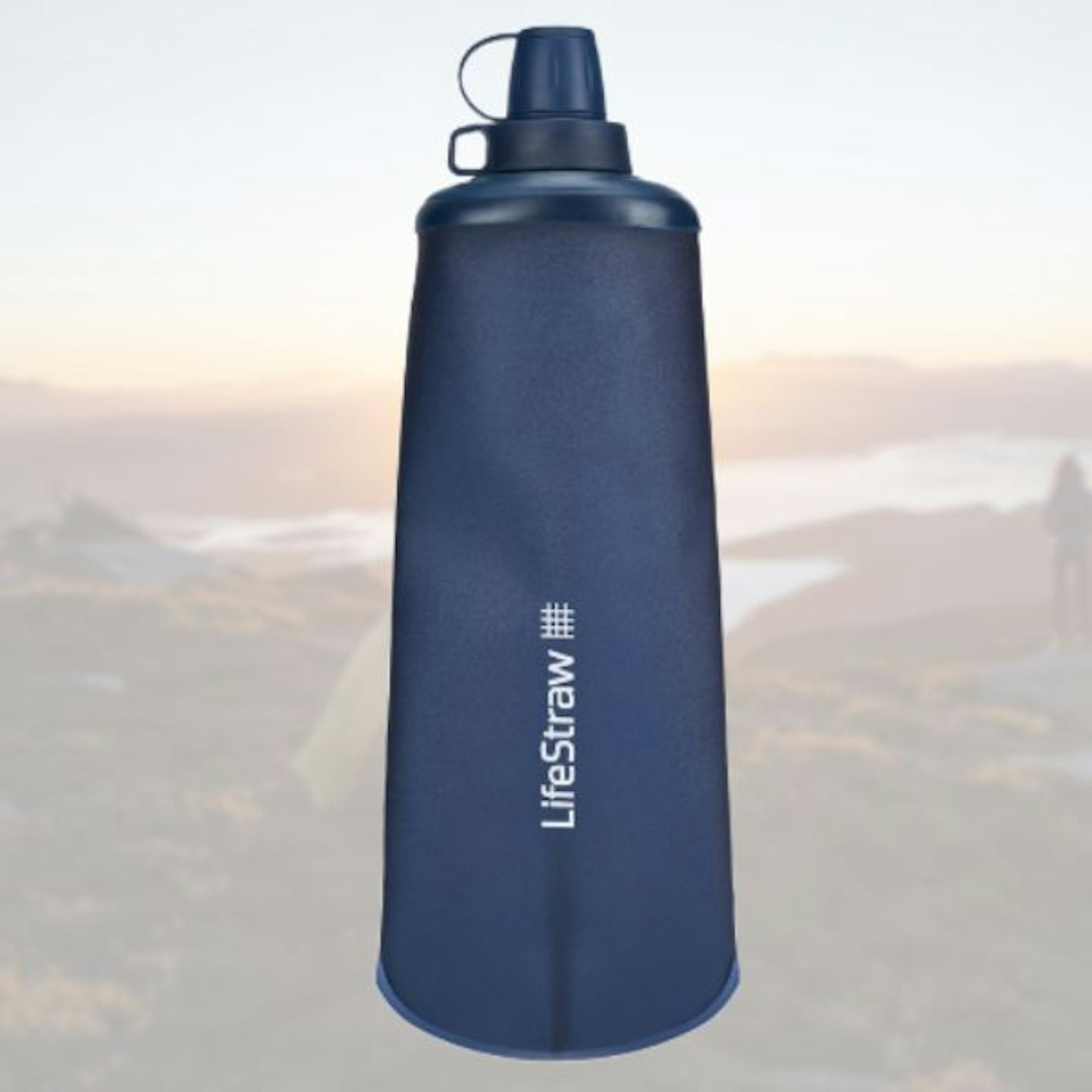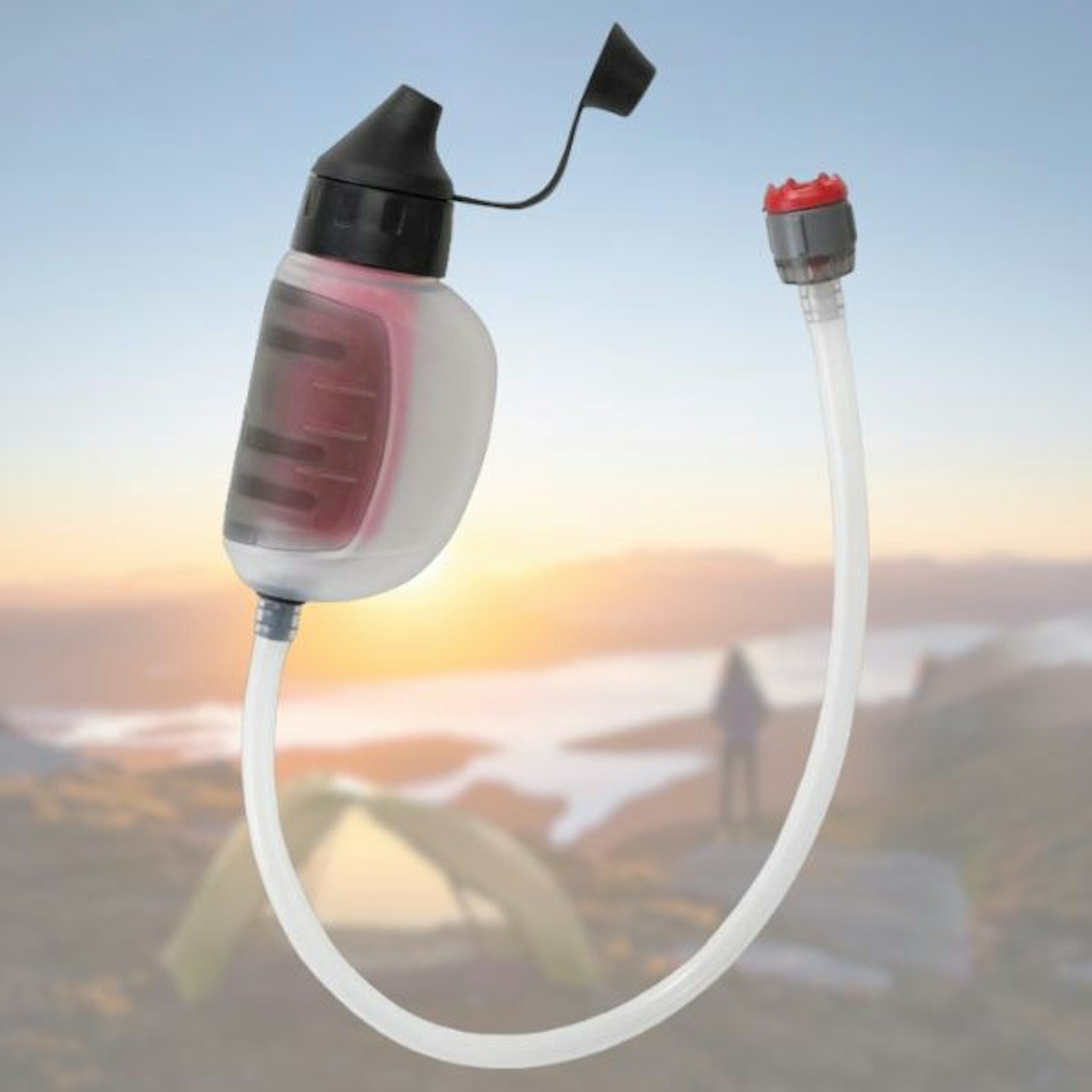When it comes to staying hydrated on the hill, there are options beyond water bottles. With a water filter or purifier, you can make wild water drinkable, which allows you to top up on the go and carry less liquid to start with.
Negating the need to carry litres of water with you on a trek is a reasonably compelling case in itself, but the world of portable filters and purifiers for hiking and outdoor use is as murky as the water they allegedly cleanse. This is primarily because there are no mandatory regulations for this market. There are voluntary standards, which we look at further down this guide, but even these aren’t perfect.
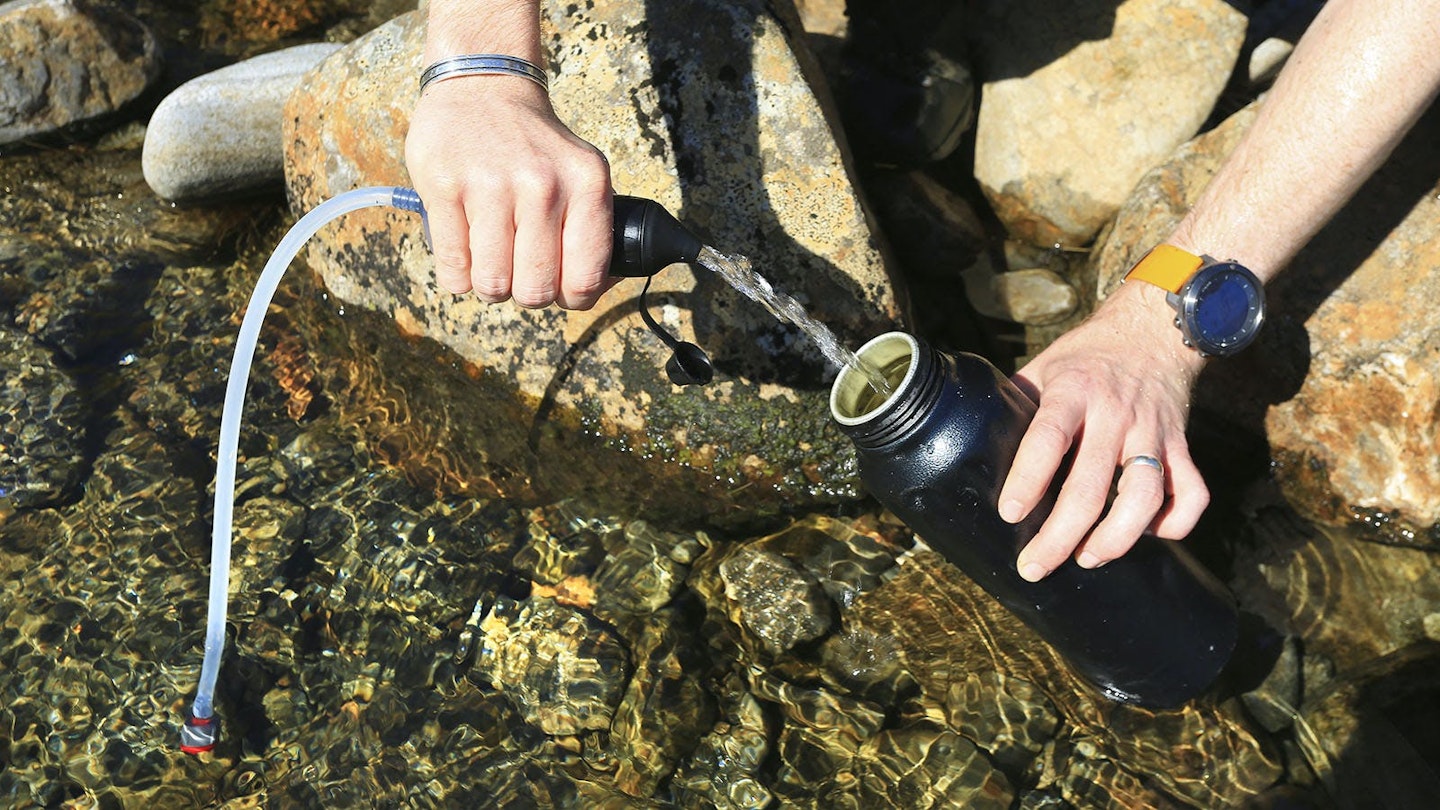
What are the best hiking water filters and purifiers of 2025?
How we tested the best hiking water filters and purifiers
Our teams at Live For The Outdoors and Trail magazine getting off-grid and exploring remote areas, along way from shops or refill stations. We hike and backpack through some of the most exciting mountain terrain in the world, and we don't always want to be laden down by energy-sapping litres of water.
So we often carry water purification systems in our packs, particularly on wild camps, so we can make wild water safe to drink. The suggestions below have been tried and tested by a number of our team members, including Ben Weeks, Oli Reed, Tom Bailey, Matt Jones and Chris Williams. Everyone has their own personal preference for the best system, so we've tried to make our recommendations as varioed as possible. For more info on how we test out kit, click here.

The best hiking water filters and purifiers reviewed:
As a very useful accessory for hikes, we've compiled a guide to help you understand what to look for in water filters and purifiers at the bottom of this article. First, here are our reviews and recommendations for the best models out there.
While many filters or purifiers will remove two out of three when it comes to bacteria, particulates and viruses, the LifeSaver Wayfarer deals with all three. It has a two-stage filter system, which consists of a cartridge filter and an activated carbon disc. The former removes 99.9999% of bacteria, 99.999% of viruses, and 99.99% of cysts, while the latter reduces chemicals and heavy metals like chlorine, lead, nickel and cadmium. It also helps improve taste.
At 323g it's not the lightest filter or purifier you'll find but it's still very compact and portable. The replaceable cartridge filters can filter 5,000 litres of water, but the activated charcoal discs need replacing after every 100 litres.
Pros
- Removes cysts, bacteria, viruses, and particulates
- Tough
- Also reduces chemicals and heavy metals
Cons
- Not the fastest flow rate
| Weight | 323g |
| Flow rate | 1.4L/min |
| Effective against bacteria | Yes |
| Effective against particulates | Yes |
| Effective against viruses | Yes |
| Tested to standard | NSF protocol P231 and U.S.A. EPA Guide Standard and Protocol for Testing Microbiological Purifiers |
This device is used like a straw to filter water as the individual sucks it up, whether drinking water direct from source (such as a pool or river) or water collected into a bottle. It removes 99.9999% of bacteria, and 99.9% of protozoa, reduces muddiness and weighs just 46g.
Pros
- Tiny and weighs next to nothing
- Couldn't be simpler to use
- Unlimited shelf life
Cons
- Lasts for 4,000 litres but is, ultimately, disposable
| Weight | 46g |
| Flow rate | N/A |
| Effective against bacteria | Yes |
| Effective against particulates | Yes |
| Effective against viruses | No |
| Tested to standard | NSF protocol P231 and U.S.A. EPA Guide Standard and Protocol for Testing Microbiological Purifiers |
Unlike typical chlorine treatments, these chlorine dioxide tablets leave no noticeable aftertaste. They’re light and packable, and while they won’t get rid of particulates in the water, they will kill bacteria, viruses and cysts in water, including Giardia and Cryptosporidium.
Pros
- No bad tastes
- Removes cysts, bacteria and viruses
Cons
- Doesn't deal with particulates
| Weight | 40g |
| Dosage | 1L/tablet |
| Effective against bacteria | Yes |
| Effective against particulates | No |
| Effective against viruses | Yes |
| Tested to standard | Not stated |
Holding 3 litres of water, the BeFree Gravity system is perfect for larger groups or base camps where it can be hung up and left to do its thing. Using gravity to filter up to two litres of water per minute, it removes bacteria, cysts and sediment.
Granted, two litres per minute isn't the fastest filtration you'll find, but for a system like this, speed isn't essential. Set it up and let it filter while you setup camp. And a sub-200g weight is pretty good for a large three-litre water container.
Pros
- Easy way to filter larger volumes of water
- Lightweight
Cons
- Doesn't remove viruses
| Weight | 192g |
| Flow rate | 2L/min |
| Effective against bacteria | Yes |
| Effective against particulates | Yes |
| Effective against viruses | No |
| Tested to standard | Not stated |
The Steripen utilises UV light to eliminate bacteria, protozoa and viruses. It doesn’t remove sediment, and the water needs to be reasonably clear for it to work. However, it’s a neat and rapid (90 seconds per litre) alternative to filtering, for which it can also be used as an additional treatment.
Pros
- Removes cysts, bacteria, and viruses
- Batteries included
- Very compact and lightweight
Cons
- Can't be used in non-clear water
| Weight | 103g |
| Flow rate | 1L/90sec |
| Effective against bacteria | Yes |
| Effective against particulates | No |
| Effective against viruses | Yes |
| Tested to standard | Not stated |
One of our bugbears with hydration systems and water filters is a slow flow rate – it’s infuriating when you’re parched and desperate to down a litre and all your filter gives you is a pathetic trickle. Not so with this system, which we’ve used for the past year to quickly filter up to three litres of stream water per minute.
It is of course an effective filter, removing 99.9999% of bacteria and 99.9% of protozoa. It's also an adaptable filter, compatible with several Platypus drinking systems. Additionally, it can attach to plastic water bottles with a 28mm neck (not that we encourage the use of single-use drink bottles).
Pros
- Fast flow rate
- Very lightweight and compact
- Adaptable
Cons
- LifeStraw Personal Water Filter is considerable cheaper
| Weight | 100g |
| Flow rate | 3L/min |
| Effective against bacteria | Yes |
| Effective against particulates | Yes |
| Effective against viruses | No |
| Tested to standard | NSF protocol P231 and U.S.A. EPA Guide Standard and Protocol for Testing Microbiological Purifiers |
The Grayl 24oz GeoPress Purifier is a portable filter water bottle made to filter a huge array of nasty things that can be found lurking in river water and non-tap water both in the UK and across the world.
Our go-to filter water bottle for world-wide travel, the GeoPress is a two-chamber bottle that filters dirty water by a cafetière-like press and go filtration system. The GeoPress is made to eradicate waterborne viruses and bacteria, along with removing nasties like pesticides, chemicals, heavy metals, microplastics, and strong tastes and odours.
In use, the GeoPress is super quick and easy to purify water, with no need for chlorine tablets, pumping, squeezing, or backflushing. Each filter cartridge lasts around 350 presses, or three years and can be easily replaced by a new one to extend the bottle’s lifespan.
The bottle itself is a bit bulky and heavy in comparison to your standard bottle, but it’s effective and durable to use, putting an end to single-use plastic bottle purchases as you hike and travel.
Pros
- Filters bacteria, viruses, pesticides, chemicals, sediments, etc.
- Quick to use in 8s press
- Filter not set into straw
- Water can be filtered and poured
- Stylish and durable bottle build
Cons
- Not the lightest bottle
- Slightly bulky
- More expensive that other options
| Weight | 450g |
| Flow rate | 5L/min |
| Effective against bacteria | Yes |
| Effective against particulates | Yes |
| Effective against viruses | Yes |
| Tested to standard | NSF/ANSI 42 and 53 (pathogen and chemical removal), U.S.A. EPA Guide Standard and Protocol for Testing Microbiological Purifiers |
When weight and size need to be kept to a minimum, this LifeStraw bottle/flask/sack gives you a packable water reservoir that maintains its filtering abilities.
At 110g, it weighs next to nothing, but the hollow fibre filter will still remove bacteria, parasites, and microplastics from 2,000 litres of water. Use the LifeStraw Peak Series Collapsible Squeeze to top up from a stream and drink on the go, or squeeze the filtered water into another container for cooking or drinking overnight.
The LifeStraw Peak Series Collapsible Squeeze comes in 650ml and 1000ml volumes.
Pros
- Lighter and more compact than solid water bottles
- Durable
- Long-lasting filter
Cons
- Grayl GeoPress has an even better filter
| Weight | 110g (1L), 102g (650ml) |
| Flow rate | 3L/min |
| Effective against bacteria | Yes |
| Effective against particulates | Yes |
| Effective against viruses | No |
| Tested to standard | NSF protocol P231 and U.S.A. EPA Guide Standard and Protocol for Testing Microbiological Purifiers |
Whether being used to drink direct from the source, or to fill up a bottle or bladder, the hand-pumped TrailShot filters out almost all (99.9%) bacteria, protozoa, and particulates. It can treat one litre of water in 60 seconds and is compact enough to fit in the stash pocket of a rucksack.
Pros
- Small and lightweight
- Simple and reliable design
Cons
- Relatively slow flow rate
| Weight | 140g |
| Flow rate | 1L/min |
| Effective against bacteria | Yes |
| Effective against particulates | Yes |
| Effective against viruses | No |
| Tested to standard | NSF protocol P231 and U.S.A. EPA Guide Standard and Protocol for Testing Microbiological Purifiers |
Water filter and purifier standards
Because the water filter and purifier market is unregulated, it's very easy for products to be all mouth and no substance.
However, some voluntary standards have been set by NSF. The ones to look for are NSF Protocol P231 and NSF Protocol 248. These standards test devices thoroughly for the removal of waterborne pathogens, which is what you want for wild water sources.
This sounds ideal, but there's a hiccup with NSF P231. Testing includes with tap water and water with increased levels of organic matter, dangerous microorganisms and turbidity (more murky) to simulate contaminated wild water. Products don't necessarily have to be subject to the wilderness water and therefore aren't subject to as thorough testing as other products might.
The best way to get a completely clear answer on how a filter or purifier has been tested, is to contact the manufacturer.
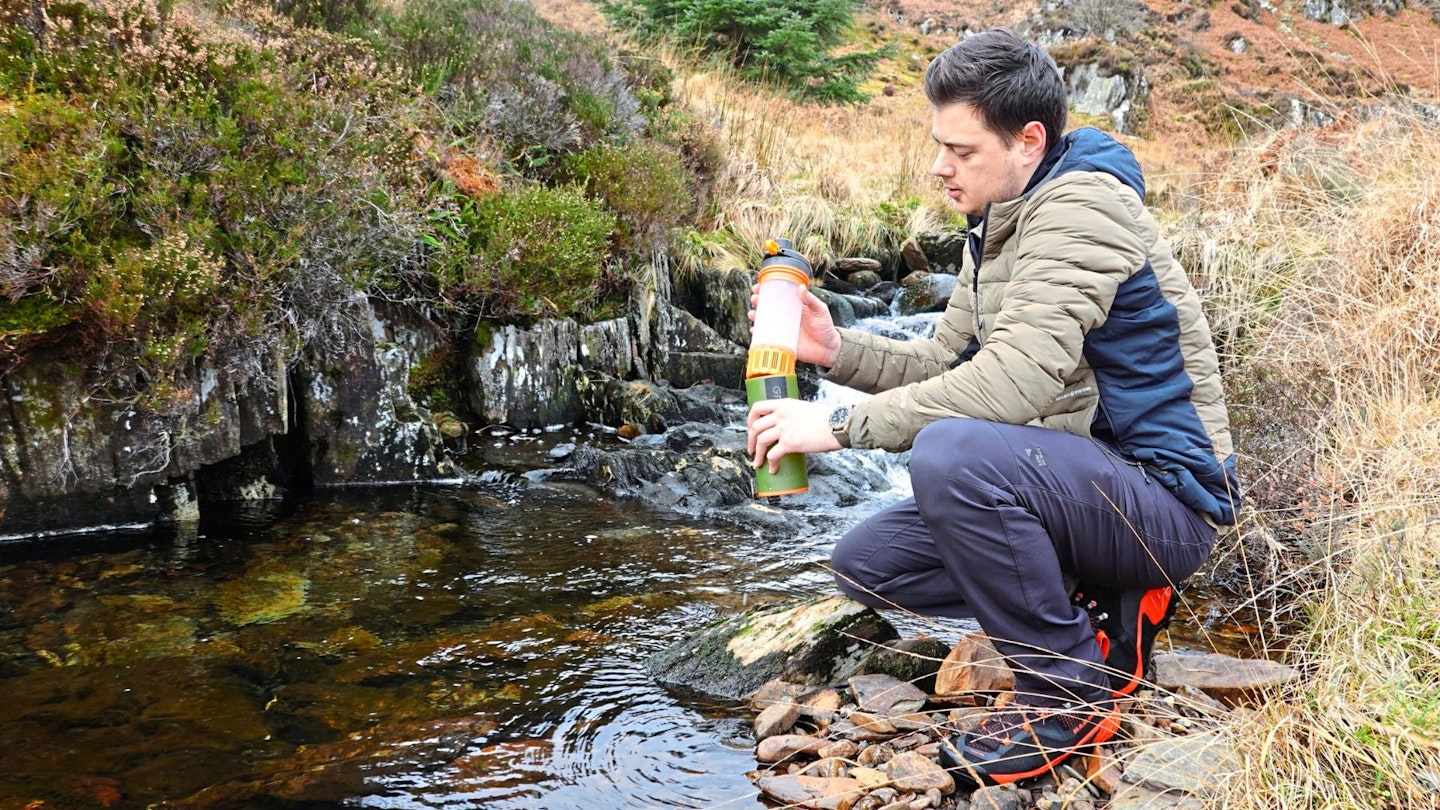
Contaminated water
The risk of contaminated water can occur anywhere, but increases in certain areas or scenarios. The three types of pathogenic microorganisms filters and purifiers help remove from water are:
- Protozoa: Single-cell organisms that form cysts, and are common in unfiltered water sources.
- Bacteria: Single-cell organisms, but smaller than protozoa that thrive in warmer water.
- Viruses: Parasites that are even smaller than bacteria that propagate in living cells.
The safest places to source wild water from are at higher elevations, above the vegetation line. Here, you are closer to the water source and the risk of contamination is lowest.
Below the vegetation line you encounter farmland, and more wildlife, which increases the level of water contamination (particulates, protozoa, and bacteria). Inside built-up habitation zones are where the risks of unsafe drinking water are highest, especially in developing countries.
What to look for in water filters and purifiers for hiking
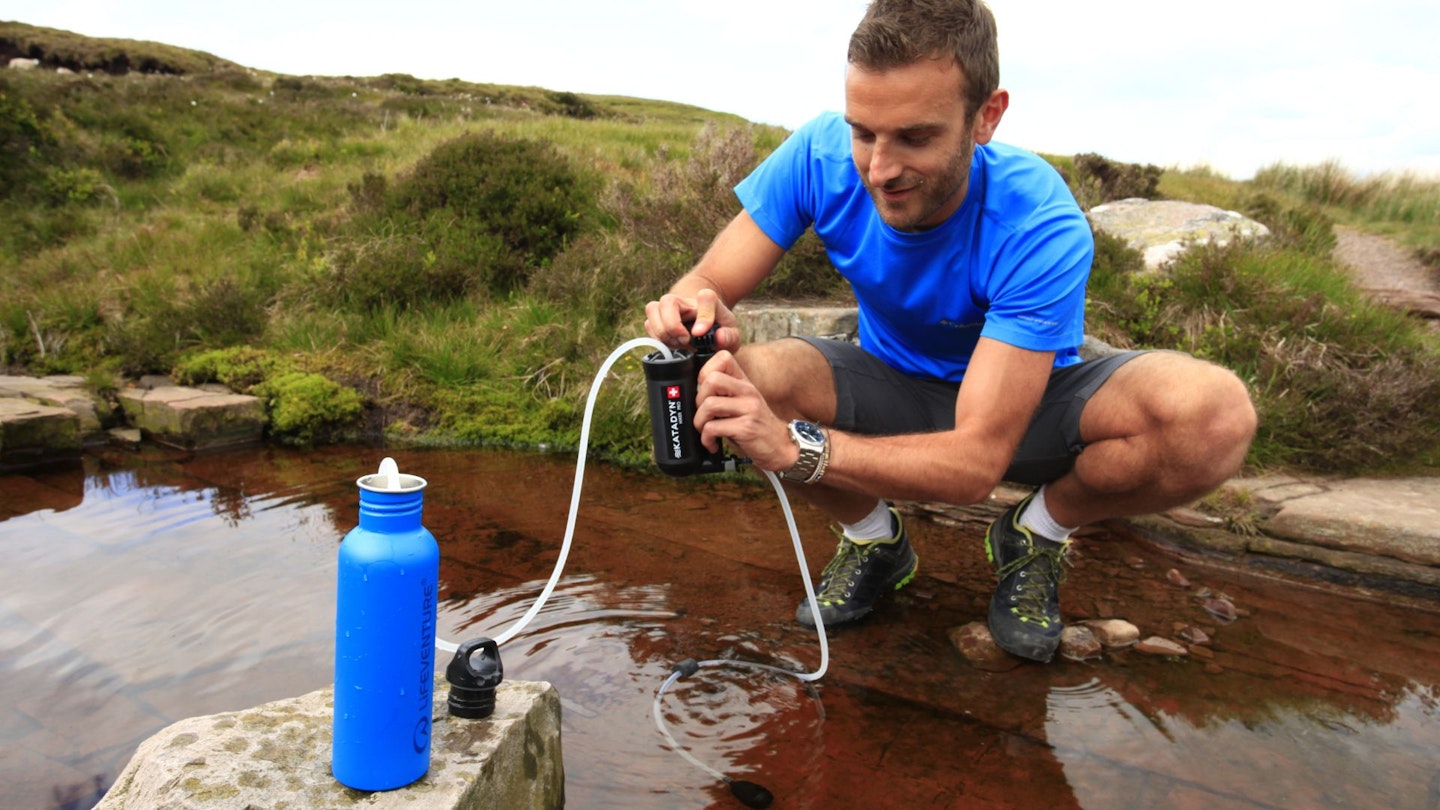
Filter vs purifier: Before making any decisions, this is the most important piece of information you need to know. A water filter will remove cysts and bacteria from water. A water purifier will remove viruses as well.
Sterilising and filtering: Some treatments will sterilise water but won’t remove impurities. Tablets can remove bacteria, cysts, and viruses but not particulates, for example. Some filters will deal with bacteria and particulates but not viruses. But there are some purifiers that deal with bacteria, particulates, and viruses, and even other contaminants like heavy metals. Know what water dangers you’re likely to face and choose the most appropriate treatment for those risks.
Weight and bulk: Most water purification options are relatively compact and lightweight, but some are more so than others. It all depends how much water you’re likely to need to purify. A big, heavy filter that takes up as much space in your pack as a large bottle of water may be of limited value on a short day-hike.
Volume of water: Do you only need something that will purify a small amount of water at a time, allowing you to top up your bottle or bladder, or will you need to treat greater quantities of water for multiple drinkers? Some devices are designed specifically for higher volumes, while others are intended for individual use.
Taste: Some chemical treatments, such as chlorine tablets, can give the water an unpleasant taste, making it much less palatable, albeit safe to drink. Chlorine dioxide is much better.
Water storage: Do you need a device that cleans and stores water, or will you be carrying a separate water bottle or bladder into which clean water can be transferred?
About the author

Ben Weeks is Trail magazine's long-serving gear editor, and one of the most respected testers of outdoor kit in Britain. Plus, he loves a remote wild camping adventure, so what he doesn't know about water filters isn't worth knowing.

